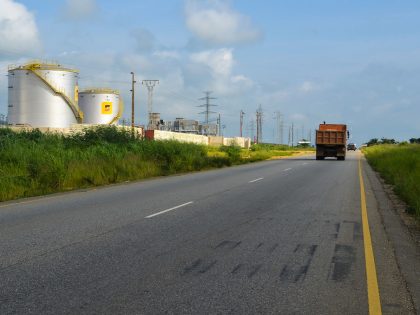
Art and assassination in Angola
A locally produced arts festival creates panic for Angola's authoritarian government, who has, predictably, responded with panic and repression.
383 Search Result(s) for: “Angola”

A locally produced arts festival creates panic for Angola's authoritarian government, who has, predictably, responded with panic and repression.

This month on AIAC Radio we talk with Marissa Moorman and Paulo Flores to see how a music culture born in the quintals of Luanda helped birth a nation. Listen on Worldwide FM.

In Angola, the ‘pseudo-event’ is all the rage: small in meaning but enlarged by Facebook and cell phones.

You’d never know it from reading the US media, but 15 political prisoners in Angola are still in jail.

In southern Angola, a preventable humanitarian crisis deepens. The government bears much of the responsibility.

A conversation with the curators of the Angolan Pavilion at the 2013 Venice Biennale.

Despite the political reforms by Angola’s government, the harassment of anti-corruption journalist Rafael Marques continues.

Rafael Marques de Morais, despite being labeled a foreign agent by the Angolan state, has always insisted that Angolans need to resolve their own problems.

A random terror attack on a football team gets media to pay attention to the conflict in Cabinda. In the process, they also expose their ignorance.
[vimeo=http://vimeo.com/16832669 w=500&h=281] In January 2010, the people behind Angola–Nos Trilhos da Independência have started collecting and

The oppression/resistance model of politics explains some things, but it does not explain everything, and less and less these days on the continent.

It is hard to find critics asking what Angolan artist Edson Chagas’s work does, the context through which it was produced, or the social conditions it draws attention to.

Claudio Silva asked young Angolan photographer Indira Mateta to write down her thoughts about her favorite photographs and email it to him.

The irony and the absurdity that the case against journalist Rafael Marques -- an opponent of state corruption in Angola -- is being heard in a former slave house.

Angola’s golden jubilee culminated in a multimillion-dollar match against Argentina. The price tag—and the secrecy around it—divided a nation already grappling with inequality.

Nas gets caught up in a musical scandal in Angola. Not how he wanted to make a connection to the continent.

When the Financial Times commits an entire article to topics Angolan, it fills my Google news alert for a week.

In post-socialist, growth-oriented Angola, the rich are getting richer and the poor have only their faith.

After 38 years of Angola's dictatorship of the elders, President João Lourenço has raised hopes that power might be more responsive to Angolans' everyday needs.

Why are certain kinds of war stories embraced by critics and go on to find an international audience, while other finely written stories do not?